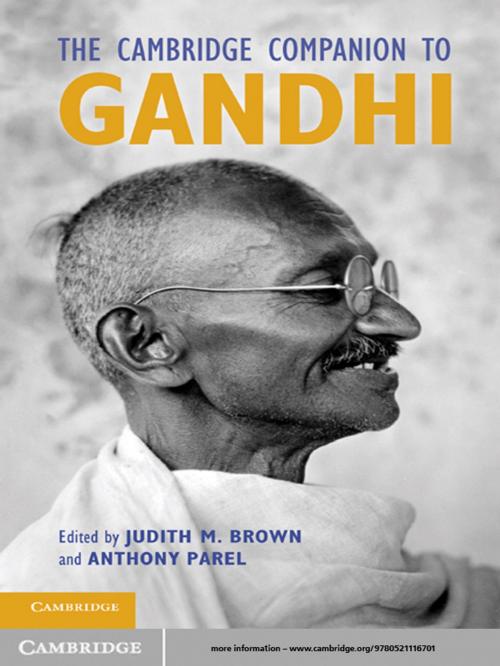| Author: | ISBN: | 9781139800945 | |
| Publisher: | Cambridge University Press | Publication: | February 21, 2011 |
| Imprint: | Cambridge University Press | Language: | English |
| Author: | |
| ISBN: | 9781139800945 |
| Publisher: | Cambridge University Press |
| Publication: | February 21, 2011 |
| Imprint: | Cambridge University Press |
| Language: | English |
Even today, six decades after his assassination in January 1948, Mahatma Gandhi is still revered as the father of the Indian nation. His intellectual and moral legacy, and the example of his life and politics, serve as an inspiration to human rights and peace movements, political activists and students. This book, comprised of essays by renowned experts in the fields of Indian history and philosophy, traces Gandhi's extraordinary story. The first part of the book explores his transformation from a small-town lawyer during his early life in South Africa into a skilled political activist and leader of civil resistance in India. The second part is devoted to Gandhi's key writings and his thinking on a broad range of topics, including religion, conflict, politics and social relations. The final part reflects on Gandhi's image and on his legacy in India, the West, and beyond.
Even today, six decades after his assassination in January 1948, Mahatma Gandhi is still revered as the father of the Indian nation. His intellectual and moral legacy, and the example of his life and politics, serve as an inspiration to human rights and peace movements, political activists and students. This book, comprised of essays by renowned experts in the fields of Indian history and philosophy, traces Gandhi's extraordinary story. The first part of the book explores his transformation from a small-town lawyer during his early life in South Africa into a skilled political activist and leader of civil resistance in India. The second part is devoted to Gandhi's key writings and his thinking on a broad range of topics, including religion, conflict, politics and social relations. The final part reflects on Gandhi's image and on his legacy in India, the West, and beyond.















